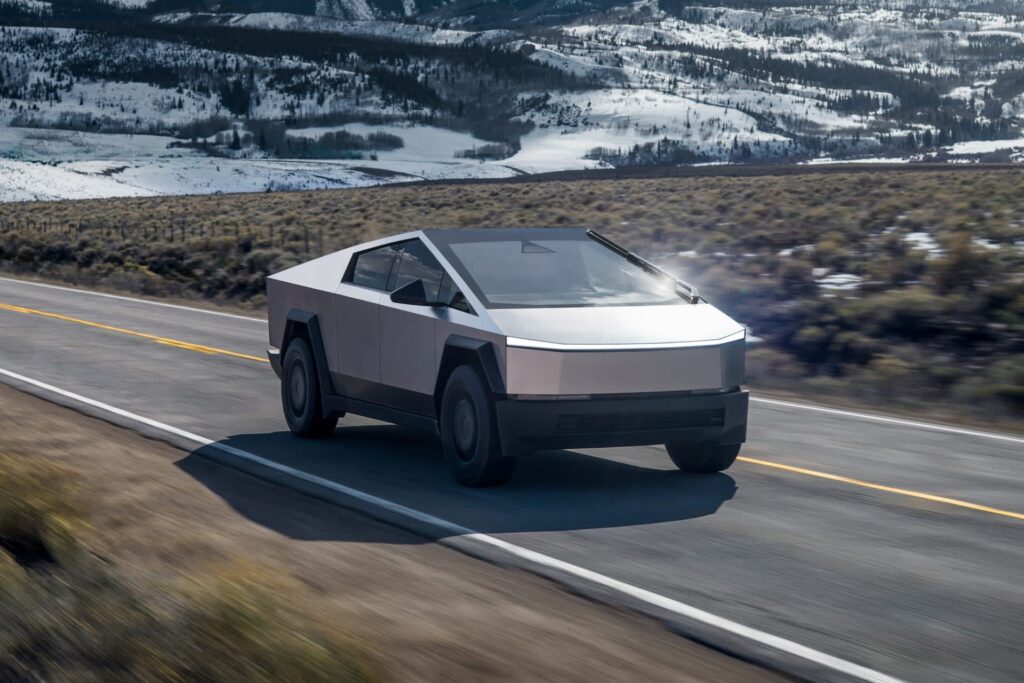Tesla has finally announced the launch of the Cybertruck in South Korea, bringing its unique electric pickup truck to the country for the first time. Existing reservation holders can confirm their orders from August 29 to September 4, with new orders opening on September 5. The announcement was made on X by Tesla Korea, describing the Cybertruck as a “bold future luxury” product making its way to Korea.
In terms of pricing, the Cybertruck All-Wheel Drive (AWD) will be priced at 145,000,000 won (approximately $107,000 USD), while the range-topping Cybertruck Cyberbeast will cost 160,000,000 won (approximately $118,000 USD). It’s worth noting that Tesla recently raised the price of the Cyberbeast by $15,000 USD in the U.S., but now includes the Luxe Package with all new orders. This package includes premium features such as Full Self-Driving (Supervised) at no extra cost.
The launch of the Cybertruck in South Korea comes on the heels of Tesla achieving a new monthly sales record in the country, indicating a growing demand for electric vehicles in the Korean market. The company seems to be leveraging this momentum by introducing its most distinctive model to date.
Safety is a crucial factor that could sway South Korean buyers towards the Cybertruck. Recently, the Cybertruck received individual 5-star safety ratings for both the driver and passenger from the U.S. National Highway Traffic Safety Administration (NHTSA), affirming its safety credentials despite its unconventional design.
With pre-orders set to open soon, Tesla’s angular electric pickup is expanding its global presence, with South Korea being the next destination on its journey. The introduction of the Cybertruck in South Korea signifies Tesla’s commitment to bringing innovative and sustainable transportation solutions to markets around the world. The world of fashion is constantly evolving, with new trends emerging every season. One trend that has been gaining popularity in recent years is sustainable fashion. Sustainable fashion is all about creating clothing in a way that minimizes environmental impact and promotes ethical practices throughout the supply chain.
One of the key elements of sustainable fashion is using eco-friendly materials. This includes using fabrics that are made from renewable resources, such as organic cotton, hemp, and bamboo. These materials are not only better for the environment, but they are also better for the people who wear them, as they are free from harmful chemicals and pesticides.
In addition to using eco-friendly materials, sustainable fashion also focuses on reducing waste. This means creating clothing that is built to last, using high-quality materials and craftsmanship. It also means finding ways to reuse or recycle clothing that is no longer wanted or needed. Many sustainable fashion brands offer take-back programs or partner with organizations that recycle clothing to ensure that it doesn’t end up in a landfill.
Another important aspect of sustainable fashion is fair labor practices. This means ensuring that the people who make our clothes are treated fairly and paid a living wage. Many fast fashion brands have come under fire for their use of sweatshops and exploitation of workers in developing countries. Sustainable fashion brands, on the other hand, prioritize transparency and accountability in their supply chains, ensuring that workers are treated with dignity and respect.
Ultimately, sustainable fashion is about taking a holistic approach to clothing production. It’s about considering the environmental impact of every decision, from the materials used to the way clothing is manufactured and transported. It’s about valuing quality over quantity, and investing in pieces that are made to last. And it’s about recognizing that our choices as consumers have a real impact on the world around us.
So the next time you’re in the market for a new piece of clothing, consider choosing a sustainable option. Whether it’s a pair of jeans made from organic cotton or a dress made from recycled materials, you can feel good knowing that you’re supporting a more ethical and environmentally-friendly fashion industry. And who knows, you may just start a trend of your own.

